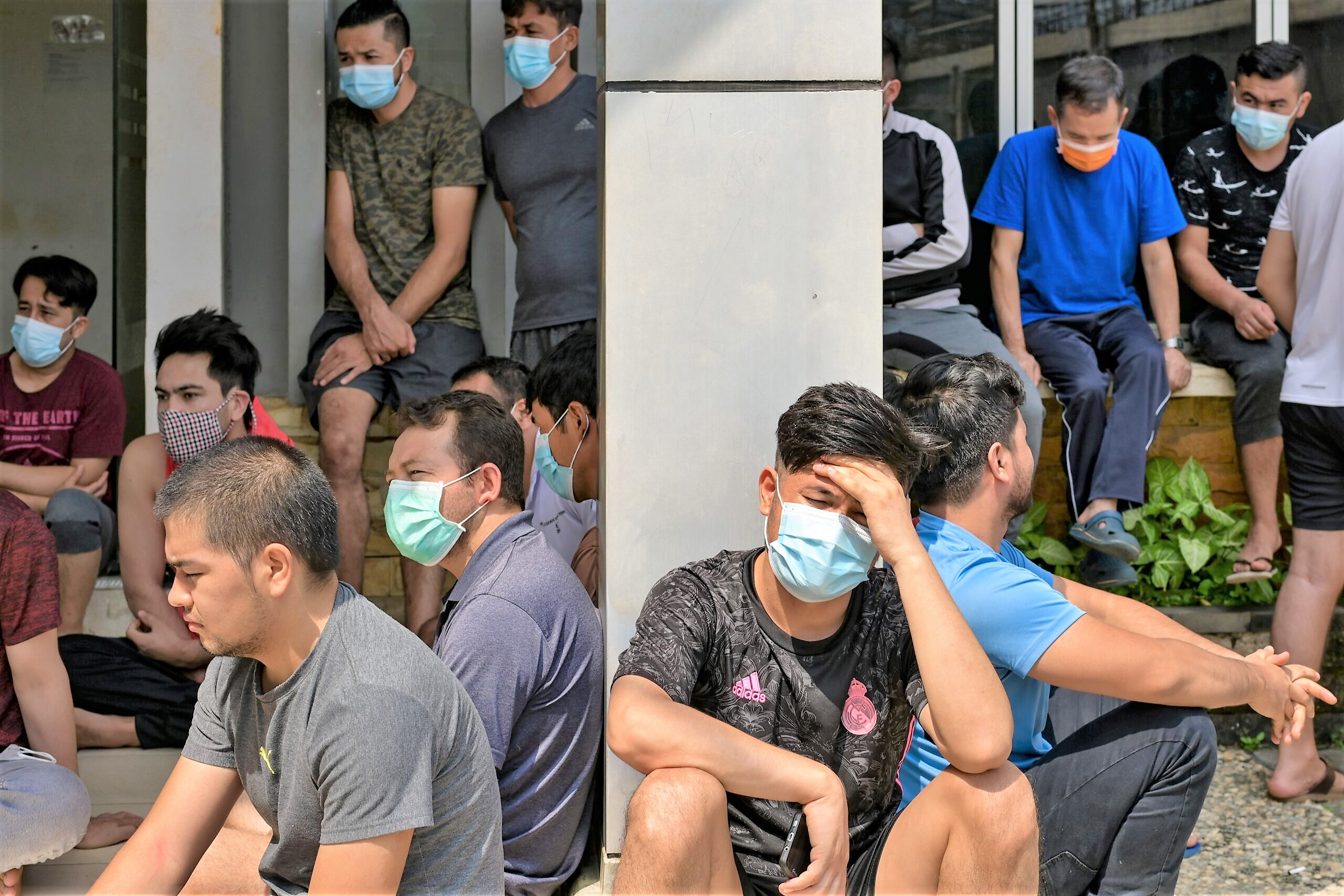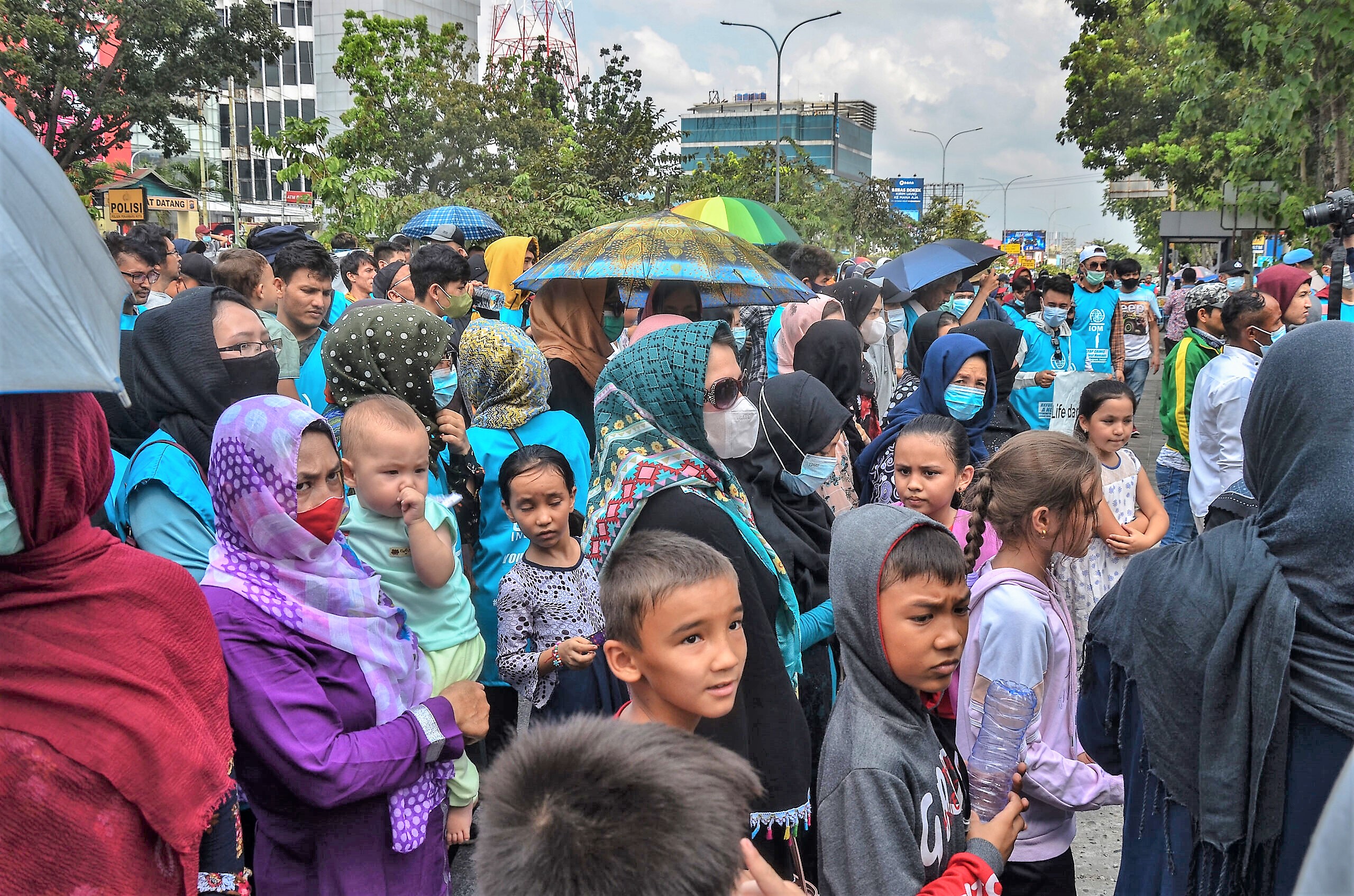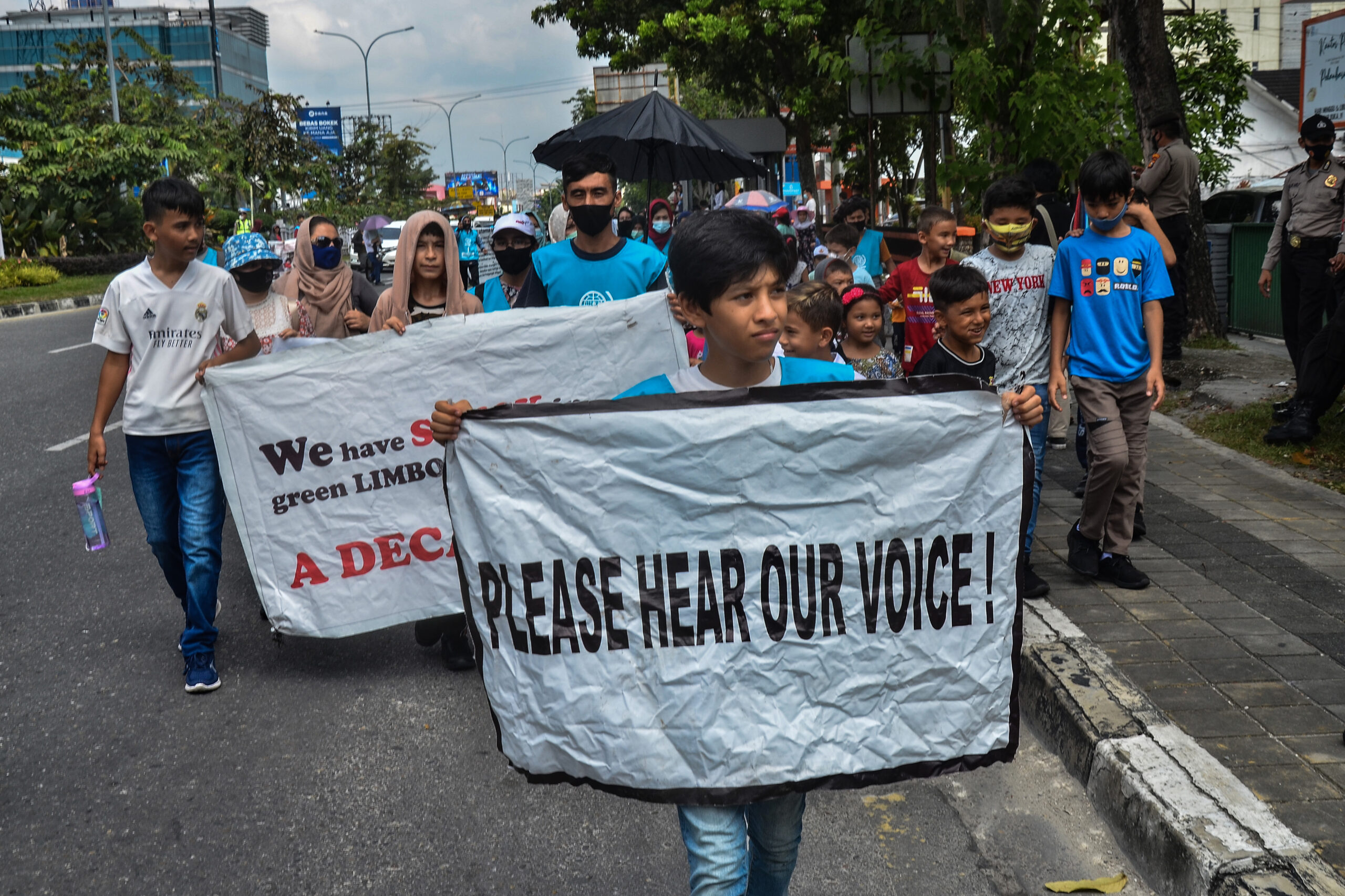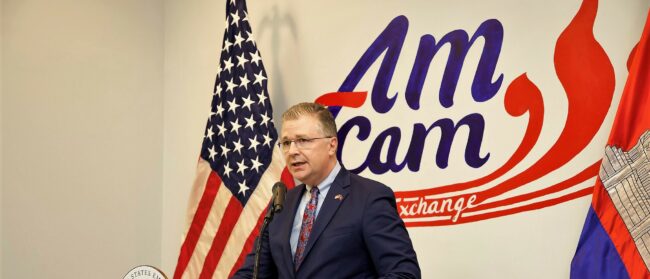Hostage is a word that should be mouthed with consideration. It holds connotations of tyranny and victimhood, especially in the context of refugees and their experiences fleeing their countries as a result of politics, religion or ethnicity.
But even when refugees receive help after they are forced out of their homes, the word can still be applied. There are refugees who receive so-called humanitarian assistance that has a detrimental impact on their wellbeing.
Refugees in this situation, including many who have sought shelter in Indonesia, found themselves in circumstances similar to being held hostage.
There are around 13,200 refugees from 48 countries living in Indonesia, according to a recent report by the United Nations High Commissioner for Refugees (UNHCR). Many have made arduous journeys across countries and over continents to seek refuge in Indonesia. The majority have been away from their homelands and families for almost a decade.
Because Indonesia is not a signatory to the 1951 United Nations convention related to refugee status, nor its 1967 protocols, the country is legally exempt from providing necessary protections like work, education, travel, marriage and property ownership. Refugees cannot even buy phone SIM cards in their own names. Indonesia also does not have a national policy for handling refugees.
That has put refugees in a complicated situation. Those who are denied access to work opportunities rely solely on external aid to survive. A third of refugees live on support from family members outside the country. Two-thirds are supported through the International Organization for Migration (IOM), which receives 80% percent of its funding from Australia.
Asylum seekers willing to receive IOM support were required to endure a rigorous detention for an indefinite time. For years, refugees were locked inside overcrowded cells, separated from the outside world by walls and barbed wire without proper medical care and adequate food.

Indonesian President Joko Widodo released a decree on treatment of refugees and asylum seekers in December 2016, which released refugees from detention. By the end of 2018 almost all refugees were released to open accommodation shelters, also known as ‘open prisons.’ Despite living among Indonesians, refugees have become ostracised from many of the rights associated with normal life.
In the absence of Indonesian government support, UNHCR and IOM provide livelihood support. The agencies also help find permanent solutions, such as resettlement to third countries or voluntary repatriation.
More than 75% percent of refugees in Indonesia are from Afghanistan, Somalia and Iraq, countries with long histories of conflict. This takes voluntary repatriation off the table. While local integration to Indonesian communities has not been attainable, resettlement remains the only permanent protection.
The resettlement window available for refugees in Indonesia is narrow. Each year less than 5% of refugees depart to third countries, a rate that would require 30 years to resettle all refugees in Indonesia. This delayed pace has caused serious protection issues and intensified mental health issues.
Refugees who escaped death in their countries have since chosen death as a way out of their debilitating situations. There have been 16 suicides among refugees in Indonesia beginning in 2014, including deaths by hanging or self-immolation. At the time, the first suicide seemed unjustifiable and could reasonably be tied to personal causes.
The second suicide occurred in late 2017, with the third in early 2018. Throughout 2018 three more suicides completed the darkest year for refugees. Since then, another three to four suicides annually have highlighted the debilitating situation for refugees in Indonesia.
The last person who hanged himself was 40 years old, the father of five young children. Another who attempted to cut his throat before being rescued by other refugees was 60.
There is no official record of deaths caused by a lack of proper medical services, but the number is high. Abdullah Tawasuli, a middle-aged Afghan refugee, died from an undisclosed illness after failing to receive treatment.
Refugees in Indonesia also have become despondent as a result of chronic concern over their families in the conflict zones of their home nations. Most of the male refugees, accounting for 75% of the total, have left behind wives, children, parents and siblings. The sense of helplessness and uncertainty regarding their families has been the biggest trigger of their distress.
Afghans account for around 99% of refugee suicides in Indonesia. Approximately 90% of those are from the Hazara ethnic and religious minority. This group has been the prime target for massacres and systematic discrimination by Afghanistan’s governments since the 1880s, including the current regime, the Taliban.
Amnesty International reported two massacres of Hazara people took place after the Taliban assumed control of Malistan and Dykundy. Recent bomb blasts targeted schools and mosques used by the Hazara residing around Kabul and Mazar Sharif. These acts are only a partial image of the violence suffered by the Hazara under Taliban rule.

Indonesia’s position as a refugee host nation also has been impacted by its relations with other Asia-Pacific countries including Australia.
Australia’s anti-migration policy has had a debilitating impact on the state of refugees in Indonesia, though with a deceptively optimistic start. When Australia began combating human smuggling under its 2013 Operation Sovereign Borders mission, the government used the slogan, “Saving lives at sea,” an ostensibly humanitarian effort to prevent refugees from being swallowed by the ocean.
Australia also increased funding to IOM and UNHCR, while upping its humanitarian intake from Indonesia from 180 cases in 2012 to 605 in 2013. However, Australia dropped its humanitarian intake to 241 cases in 2016, 62 submissions in 2020 and zero in 2021. Australia also cut funding for newcomers who arrived in Indonesia beginning in August 2018.
Refugees have found themselves in a limbo approaching the level of humanitarian catastrophe. In response, they have taken their pain to the street.
Since the Taliban resumed power in August, thousands of Afghan refugees across Indonesia have marched each week to call for an end to a decade of limbo and assistance for their families. In 10 months since the start of peaceful demonstrations by Afghan refugees, there has been no tangible response.
The word hostage may seem extreme, but is not far from reality. More than ever, refugees in Indonesia need urgent protection as gradual death becomes a tragically normal part of their lives.
Hussain Shah Rezaie is a writer, editor and refugee rights advocate. He is originally from Afghanistan and has lived as a refugee in Tanjung Pinang, Indonesia, for the past eight years.


